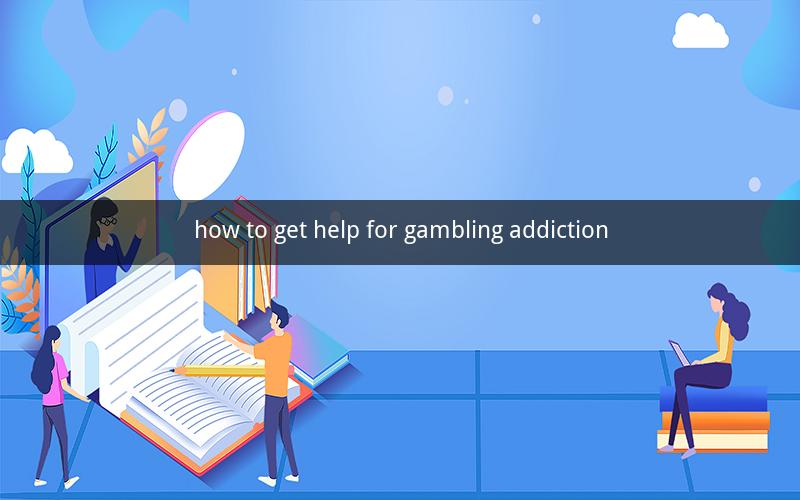
How to Get Help for Gambling Addiction
Table of Contents
1. Understanding Gambling Addiction
2. Recognizing the Signs of Problem Gambling
3. The Importance of Seeking Help
4. Professional Help Options
- Therapies
- Support Groups
- Inpatient and Outpatient Programs
5. Self-Help Strategies
- Setting Boundaries
- Developing Coping Mechanisms
- Financial Management
6. Family and Friends Support
7. Legal and Financial Consequences
8. Online Resources and Tools
9. The Role of Technology in Treatment
10. Long-Term Recovery and Relapse Prevention
1. Understanding Gambling Addiction
Gambling addiction, also known as compulsive gambling, is a progressive disorder characterized by an inability to control or stop gambling despite negative consequences. It is a mental health issue that can affect individuals of all ages, backgrounds, and socioeconomic statuses. Understanding the nature of gambling addiction is the first step in seeking help.
2. Recognizing the Signs of Problem Gambling
Identifying the signs of problem gambling is crucial for early intervention. These signs include:
- Spending increasing amounts of time and money on gambling activities.
- Feeling restless or irritable when not gambling.
- Using gambling as a way to escape problems or negative emotions.
- Lying to friends, family, or therapists about gambling habits.
- Borrowing money or selling possessions to fund gambling.
3. The Importance of Seeking Help
Seeking help for gambling addiction is essential to address the underlying issues and prevent further harm. Help can come in various forms, including professional therapy, support groups, and self-help strategies.
4. Professional Help Options
Therapies
Therapies such as cognitive-behavioral therapy (CBT), dialectical behavior therapy (DBT), and motivational interviewing (MI) can be effective in treating gambling addiction. These therapies help individuals:
- Identify and change negative thought patterns.
- Develop healthier coping mechanisms.
- Create and maintain a gambling-free lifestyle.
Support Groups
Support groups like Gamblers Anonymous (GA) provide a safe and confidential space for individuals to share their experiences and receive support from others who have faced similar challenges. These groups offer a sense of community and understanding.
Inpatient and Outpatient Programs
Inpatient programs offer intensive treatment and round-the-clock support, while outpatient programs provide more flexibility for individuals who cannot commit to residential treatment. Both types of programs offer a structured approach to recovery.
5. Self-Help Strategies
Setting Boundaries
Establishing clear boundaries around gambling, such as setting a budget and time limits, can help prevent relapse. It is important to monitor and adjust these boundaries as needed.
Developing Coping Mechanisms
Finding alternative activities to replace gambling can help individuals manage stress and negative emotions. These activities may include exercise, meditation, hobbies, or socializing with friends and family.
Financial Management
Addressing the financial consequences of gambling is vital for recovery. This may involve seeking financial counseling, creating a budget, and setting financial goals.
6. Family and Friends Support
Family and friends can play a crucial role in supporting individuals with gambling addiction. Providing emotional support, understanding, and encouragement can make a significant difference in the recovery process.
7. Legal and Financial Consequences
Gambling addiction can lead to serious legal and financial consequences, including debt, legal fees, and even bankruptcy. It is important to address these issues as part of the recovery process.
8. Online Resources and Tools
Online resources and tools can provide valuable information, support, and assistance. These include websites, forums, and mobile apps that offer guidance, coping strategies, and access to support groups.
9. The Role of Technology in Treatment
Technology can be a valuable tool in treating gambling addiction. Mobile apps, online support groups, and virtual therapy sessions offer convenient and accessible options for individuals seeking help.
10. Long-Term Recovery and Relapse Prevention
Long-term recovery from gambling addiction requires ongoing commitment and effort. Relapse prevention strategies, such as attending support group meetings, maintaining healthy relationships, and practicing self-care, can help individuals stay on track.
Questions and Answers
1. What is the difference between problem gambling and gambling addiction?
- Problem gambling refers to any gambling behavior that causes distress or harm, while gambling addiction is a more severe form of problem gambling characterized by compulsive behavior.
2. Can gambling addiction be cured?
- While there is no cure for gambling addiction, it can be effectively managed through treatment and support.
3. How can I encourage a loved one to seek help for their gambling addiction?
- Be supportive, non-judgmental, and encourage them to seek professional help. Offer to accompany them to appointments or support group meetings.
4. Are there any medications that can help treat gambling addiction?
- While there are no medications specifically designed to treat gambling addiction, certain medications may help manage co-occurring mental health issues.
5. How long does it take to recover from gambling addiction?
- Recovery from gambling addiction is a lifelong process. Some individuals may experience immediate relief, while others may require ongoing treatment and support.
6. Can I still enjoy gambling if I have a gambling addiction?
- It is important to avoid gambling altogether if you have a gambling addiction. Engaging in gambling can trigger relapse and worsen the condition.
7. What should I do if I think I have a gambling addiction?
- Seek help from a professional therapist or counselor. They can provide an assessment and recommend appropriate treatment options.
8. Can I recover from gambling addiction on my own?
- While some individuals may find success through self-help strategies, seeking professional help is often more effective and provides a structured approach to recovery.
9. How can I support a friend who is struggling with gambling addiction?
- Offer your support, listen without judgment, and encourage them to seek professional help. Understand that recovery is a process, and patience is key.
10. Is it possible to prevent a gambling addiction?
- While there is no guaranteed way to prevent a gambling addiction, being aware of the risks, setting boundaries, and seeking help early can reduce the likelihood of developing an addiction.